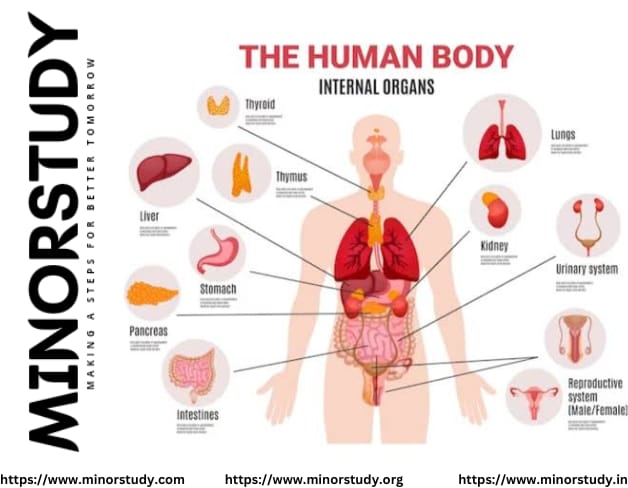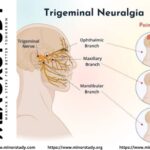🌟 Introduction: The Living Miracle We Carry
The human body is one of the most complex, intelligent, and resilient creations in existence. It operates 24/7 without rest, heals itself, processes millions of signals, and houses the mind, emotions, and soul. From the miracle of the beating heart to the mysteries of the brain and DNA, every part of the body works in harmony to keep us alive, functioning, and thriving.
- 🧬 What is the Human Body?
- 📜 Timeline: Understanding the Human Body Through Ages
- 💡 Mind-Blowing Facts About the Human Body
- ❓ Frequently Asked Questions (FAQs)
- Q1: How many systems are in the human body?
- Q2: What is the most important organ in the body?
- Q3: Can humans live without some organs?
- Q4: What keeps the body alive?
- Q5: How does the body heal itself?
- 🧩 Importance of the Human Body in Daily Life
- 🌍 Social Significance of Understanding the Human Body
- 🎉 Observances Related to the Human Body
- 💖 Heartfelt Wishes About the Human Body
- 📌 Key Takeaways
- 🏁 Conclusion: The Body is Your Lifelong Partner — Treat It with Respect
This article explores the history, science, daily significance, social importance, and wonders of the human body — something we all possess, yet rarely stop to appreciate.
🧬 What is the Human Body?
The human body is a biological system consisting of cells, tissues, organs, and systems that function together to sustain life. It has:
206 bones
Over 600 muscles
37.2 trillion cells
100 billion neurons in the brain
11 major systems including circulatory, respiratory, nervous, digestive, endocrine, etc.
Despite its physical limits, the intelligence and adaptability of the human body are nothing short of breathtaking.
📜 Timeline: Understanding the Human Body Through Ages
| Era | Milestone |
|---|---|
| 3000 BCE | Egyptians document surgeries and organs in papyrus texts |
| 460 BCE | Hippocrates introduces systematic anatomy and ethics |
| 130 CE | Galen builds early human anatomy models (based on animals) |
| 1543 CE | Andreas Vesalius publishes De humani corporis fabrica, a major leap in human anatomy |
| 1700s | Microscopy opens a new world into cells and tissues |
| 1800s | Louis Pasteur and others link microbes to diseases |
| 1953 | Watson and Crick discover DNA’s double helix structure |
| 2000 | Human Genome Project begins decoding human genes |
| Present | AI, 3D printing, and regenerative medicine revolutionize human health |
💡 Mind-Blowing Facts About the Human Body
Your heart beats about 100,000 times a day, pumping 5.5 liters of blood every minute.
The brain generates 20 watts of power—enough to power a dim lightbulb.
The human liver can regenerate itself from just 25% of its mass.
Your body has enough DNA to stretch from Earth to the Sun and back 600 times.
Bones are five times stronger than steel by weight.
The stomach’s lining renews itself every 3 to 4 days to avoid being digested.
Human eyes can distinguish over 10 million colors.
Every second, your body produces 25 million new cells.
Babies have more bones (around 300) than adults — they fuse as we grow.
❓ Frequently Asked Questions (FAQs)
Q1: How many systems are in the human body?
There are 11 major systems, including:
Nervous
Muscular
Circulatory
Respiratory
Digestive
Endocrine
Lymphatic
Urinary
Reproductive
Integumentary (skin)
Skeletal
Q2: What is the most important organ in the body?
All organs are essential, but the brain and heart are especially crucial — the brain for control and cognition, the heart for circulation.
Q3: Can humans live without some organs?
Yes! You can live without a spleen, gallbladder, kidney (one), appendix, or parts of the liver and intestines — thanks to the body’s adaptive nature.
Q4: What keeps the body alive?
Key systems working together — especially the cardiovascular, respiratory, and nervous systems — maintain life through oxygen, nutrient delivery, and coordination.
Q5: How does the body heal itself?
The body triggers inflammation, sends white blood cells, repairs tissues, and regenerates cells through built-in healing mechanisms.
🧩 Importance of the Human Body in Daily Life
It’s your vehicle: From walking, eating, talking, and thinking—everything is through your body.
Emotional anchor: The body physically responds to joy, fear, love, and stress.
Productivity tool: Whether you’re a worker, artist, or athlete—your output depends on your body’s condition.
Immune warrior: Your body constantly fights bacteria, viruses, and infections.
Sensor of the world: Touch, sight, hearing, taste, and smell — your body interprets the universe for you.
🌍 Social Significance of Understanding the Human Body
Health awareness: Better knowledge leads to early diagnosis and prevention of diseases.
Body positivity: Helps fight unrealistic beauty standards and promotes self-love.
Equality and empathy: Recognizing we all have the same body structure fosters inclusiveness and human dignity.
Medical breakthroughs: Studying the human body leads to cures, vaccines, and surgical advancements.
🎉 Observances Related to the Human Body
World Health Day – April 7
International Day of Persons with Disabilities – December 3
National Organ Donation Day
World Anatomy Day – October 15
International Brain Awareness Week – March (third week)
These are occasions to celebrate, study, and support awareness about the body, its functions, and associated healthcare efforts.
💖 Heartfelt Wishes About the Human Body
🌼 “May your body be strong, your mind be clear, and your heart be full. Here’s to honoring the miraculous machine that makes us human!” 🌼
Let us respect our bodies not just in sickness but in every heartbeat, every breath, every movement.
📌 Key Takeaways
The human body is an engineering marvel — biological, chemical, and emotional all at once.
It is self-healing, self-sustaining, and astonishingly complex.
Understanding it helps us make better health choices, improves societal empathy, and fuels medical innovation.
We are living inside a masterpiece of nature and evolution.
🏁 Conclusion: The Body is Your Lifelong Partner — Treat It with Respect
The human body is not just flesh and bones — it is your best friend, protector, and home. It never sleeps, it speaks without words, and it adapts to whatever life throws at it. In a world obsessed with speed and productivity, we often forget to appreciate and nurture our bodies.
Understanding the body is the first step toward health, happiness, and harmony—for individuals and society alike.









Curious? See the retention graph (section 2) before you blindly buy likes on tiktok.